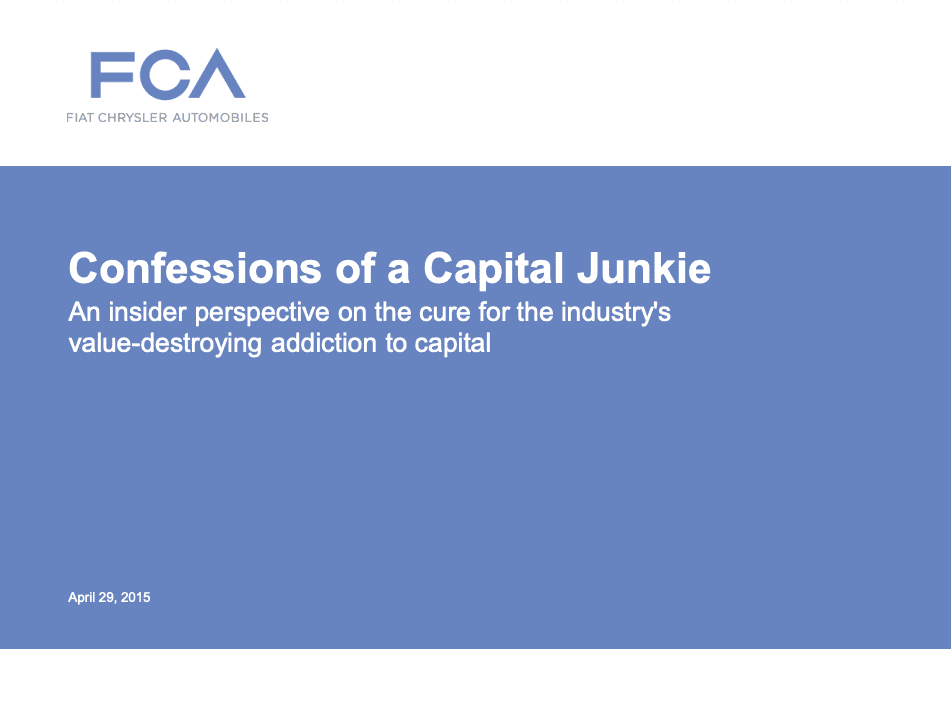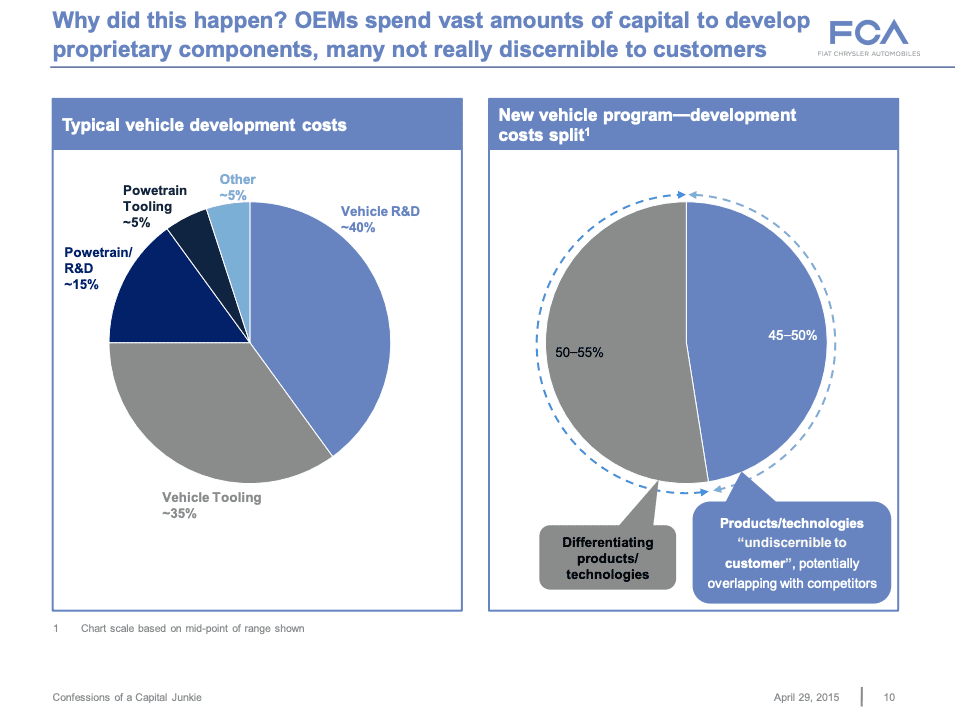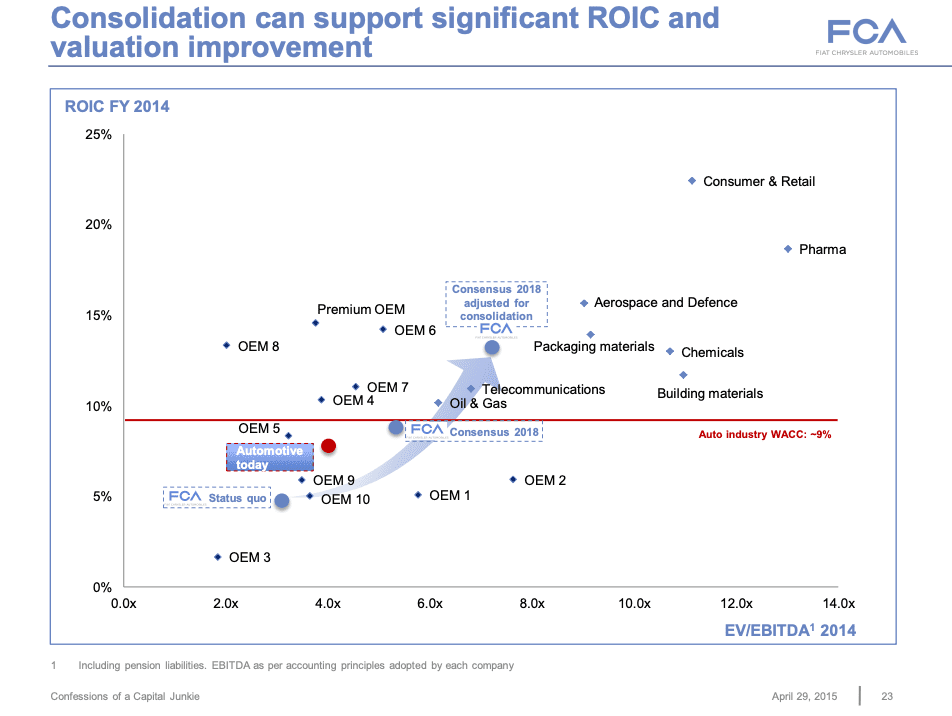Welcome back to the latest episode of The Future of Automotive on CBT News, where we put recent automotive and mobility news into the context of the broader themes impacting the industry.
I’m Steve Greenfield from Automotive Ventures, and I’m glad that you could join us this week.
It’s hard to believe that it’s been 10 years since Sergio Marchionne, at that point the CEO of Fiat Chrysler, published his “Confessions of a Capital Junkie” manifesto, which outlined his argument for industry consolidation of automakers.
(file available here: https://www.stellantis.com/content/dam/stellantis-corporate/archives/fca/analyst-presentations/2015/SM_Fire_investor_presentation.pdf)
In the document, he argued that industry consolidation was the path to evolve past the OEM’s addiction to massive and inefficient capital investment, and as a result drive out costs and deliver higher margins for industry players.
Marchionne argued that 40% of an automaker’s total vehicle development cost was R&D, which could easily be shared across multiple automakers.
He further argued that half of a vehicle’s features and technology were “undiscernible to customers,” and only half of a vehicle’s features were actually differentiated. This gave further credence to his argument that industry consolidation could save a massive amount of expense in designing new vehicles by sharing costs of development. As a result, consolidated automakers could realize a higher return on their invested capital, and would thus be rewarded in the public markets with higher stock market valuations.
10 years later, it’s valuable to revisit Marchionne’s body of work in the context of the existential threat that the Chinese automakers present to the legacy automakers in today’s environment.
Today, the Chinese are producing great quality cars very cheaply, and given the dynamics of massive over capacity in their home market, they’re facing intense pressure to export million of vehicles per year into international markets.
Import tariffs implemented by the U.S., Canada and Western Europe are only a short-term bandaid to buy legacy automakers time to figure out how to address the real issue: how are they going to compete against newer, more nimbler and faster innovating Chinese automakers who can produce great quality vehicles at lower cost on shorter development cycles?
Rest in peace, Sergio Marchionne, but know that your body of work is just as relevant today as it was 10 years ago. If not more so.






So, with that, let’s transition to Our Companies to Watch.
Every week we highlight interesting companies in the automotive technology space to keep an eye on. If you read my weekly Intel Report, we showcase a company to watch, and take the opportunity here on this segment each week to share that company with you.
Today, our new company to watch is Big Atom.
Big Atom is revolutionizing tire recycling.
The company connects manufacturers, wholesalers, garages, collectors, and recyclers to create scalable, sustainable solutions for waste tires.
Their digital voucher system provides tire manufacturers with a tool to recycle a tire for every new tire they sell. This enables manufacturers to influence how tires are recycled, and where recycled tires end up.
For tire shops, you can simplify your tire disposal process, allowing a compliant, reliable and cost-effective collection and drop-off service for businesses that require tire disposal solutions.
If you’d like to learn more about Big Atom you can check them out at www.bigatom.co
So that’s it for this week’s Future of Automotive segment.
If you’re an AutoTech entrepreneur working on a solution that helps car dealerships, we want to hear from you. We are actively investing out of our DealerFund.
Don’t forget to check out my first book, “The Future of Automotive Retail,” and my brand-new book, “The Future of Mobility”, both of which are now available on Amazon.com.
Thanks (as always) for your ongoing support and for tuning into CBT News for this week’s Future of Automotive segment. We’ll see you next week!


